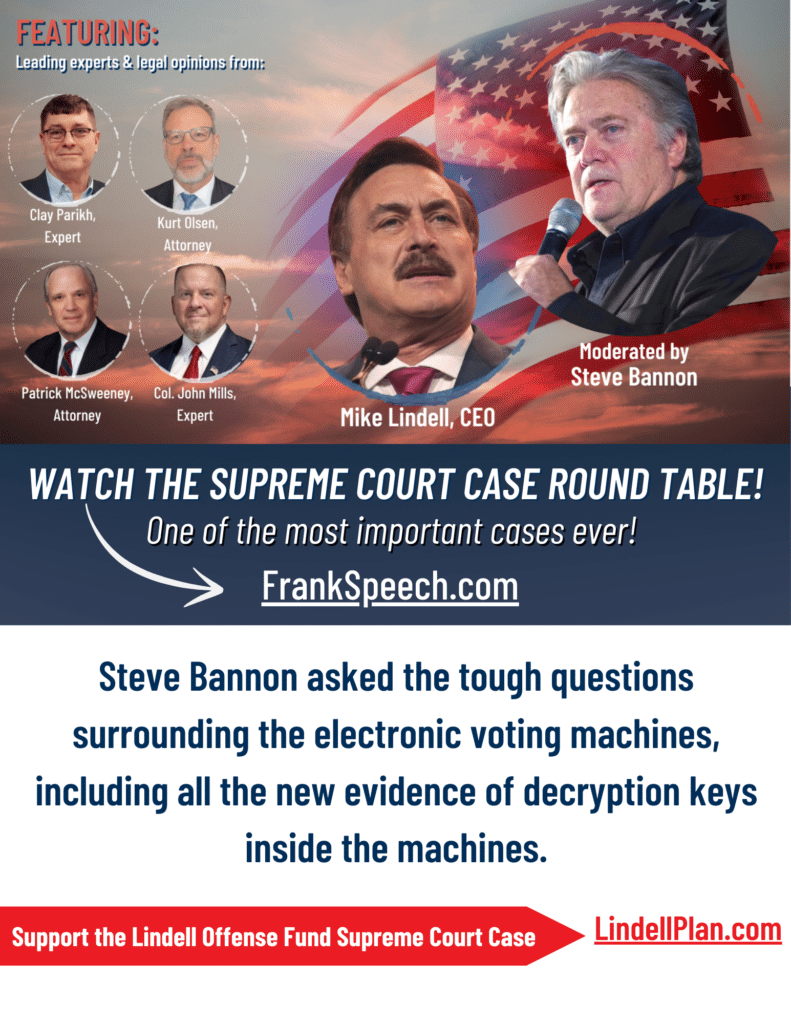"We need your financial help immediately to secure our elections and save our country."
MIKE LINDELL
SUPREME COURT CASE FILED!
WILL SHOCK THE WORLD!
DECRYPTION KEYS FOUND IN VOTING MACHINES!
“It is like a bank telling the public they have the most secure vault in the world, and then taping the combination on the wall next to the vault door. Even worse, key logging features that would record system activity showing such control can also be manipulated or disabled, thereby rendering any penetration of this system nearly undetectable.”
– Page 13 of Filing
After three years of dedication, The Lindell Offense Fund, created by Mike Lindell, is supporting a critical injunction case on behalf of Kari Lake and Mark Finchem that has now been brought to the Supreme Court of the United States. The Petition calls for SCOTUS to take the case and reverse the lower courts’ refusal to address evidence of election manipulation using electronic voting systems.
This case started in Arizona calling for an injunction against the machines featuring Kari Lake and Mark Finchem as the plaintiffs. Federal District Court Judge John Tuchi dismissed the lawsuit based upon standing and ruled that the claims were “too speculative”. The 9th Circuit Court of Appeals affirmed that ruling. It has now been brought to the United States Supreme Court.
Please share this page everywhere so that they can read firsthand about how the integrity of our elections have been compromised. When you hear stories in the media about the contents of this filing, you will then be able to take note of which media outlets are telling the truth and which ones are pushing false narratives.



